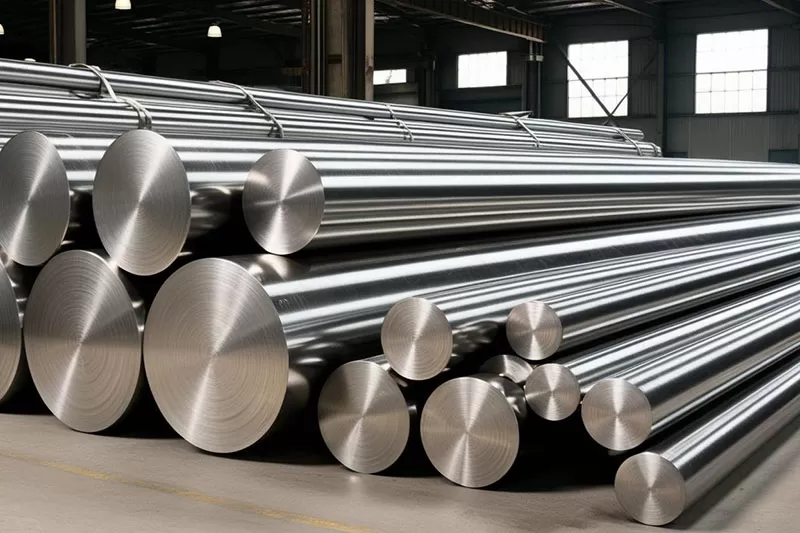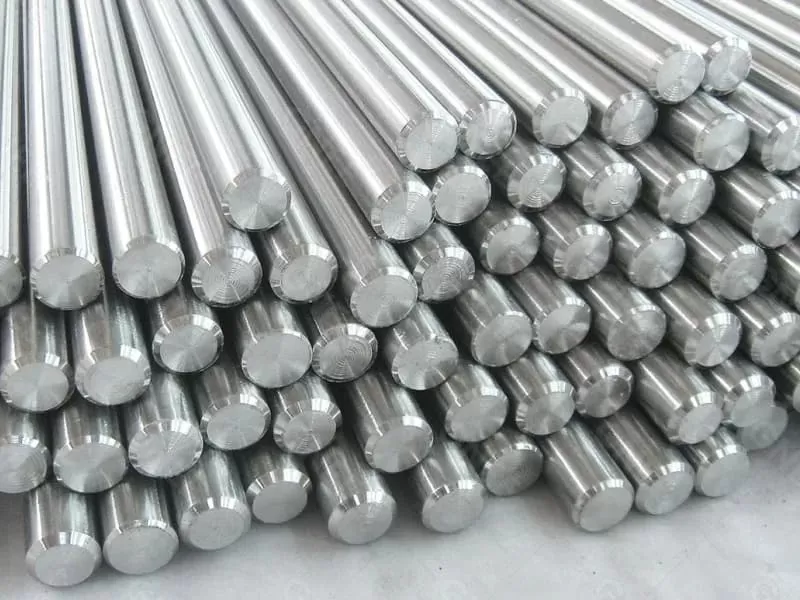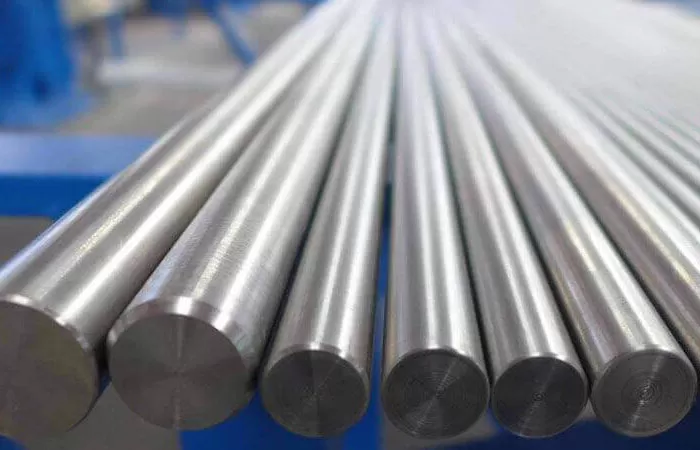
There is a broad selection of nickel alloys available, each with unique properties and applications. Below, you will find a description of some commonly used grades:
Inconel®:
Inconel® is a specific type of nickel alloy that contains chromium, molybdenum, and iron as its primary alloying elements. It is renowned for its exceptional resistance to oxidation, superior performance in high-temperature environments, and mechanical strength. Due to its rapid work-hardening behavior, Inconel® can be challenging to cold form. Typical alloys within the Inconel® family include Inconel 625, 718, and 600.
Monel®:
Monel® refers to a group of copper-based nickel alloys. These alloys exhibit high strength and excellent resistance to saltwater corrosion. They also perform well in low-temperature environments, maintaining ductility while increasing hardness and strength. Monel® tends to work harden during cold forming, making it difficult to process. Commonly used Monel® alloys include Monel® 400, R-405, and K-500.
Hastelloy®:
Hastelloy® is the trade name for a highly corrosion-resistant alloy, available in either a nickel-chromium or nickel-molybdenum composition. In addition to its exceptional corrosion resistance, Hastelloy® offers good thermal stability, making it suitable for applications in the aerospace and chemical processing industries. Typical alloys in the Hastelloy® series include C-22 and C-276.
Nickel-Copper Alloys:
Nickel-copper alloys demonstrate excellent resistance to saltwater corrosion and fouling, making them extensively used in the marine industry. These alloys may also contain small amounts of iron, tin, and manganese to enhance their corrosion resistance. The copper content in these alloys can range from 55 to 91.5%, with nickel being the next significant alloying element. Monel® is considered a nickel-copper alloy.
Nickel-Iron Alloys:
Nickel-iron alloys exhibit good ductility, low thermal expansion, and corrosion resistance. Additionally, these alloys possess soft magnetic properties, making them suitable for applications requiring low thermal expansion, such as sensitive scientific equipment, or benefiting from soft magnetic properties, like transformers. Invar® is a common trade name for a nickel-iron alloy.
Nickel-Chromium Alloys:
Nickel-chromium alloys offer excellent corrosion and oxidation resistance, while maintaining strength at elevated temperatures. They also possess high electrical resistivity, making them well-suited for applications as heater elements in appliances like ovens and toasters. Nickel-chromium alloys typically have a high nickel content, often around 70%, and can have a melting point exceeding 1300 °C.
Nickel-Titanium Alloys:
Nickel-titanium alloys exhibit excellent corrosion resistance and mechanical strength. Their most notable property is shape memory, as they belong to a class of alloys known as shape memory alloys (SMAs). Above a specific transition temperature, these alloys can be formed into a particular shape. When cooled and deformed, they will return to their original shape upon reheating to the transition temperature. The composition of the alloy determines the transition temperature, allowing for adjustment. These alloys find extensive use in medical applications, such as expandable stents. Nitinol® is a well-known name for nickel-titanium alloys.
Nickel-Molybdenum Alloys:
Nickel molybdenum alloys provide excellent corrosion and oxidation resistance at high temperatures, while retaining their mechanical properties. One common nickel-molybdenum alloy is also referred to as Hastelloy®. This alloy is commonly employed in heat exchangers, pumps, and reactor pressure vessels.

2025-12-11 16:42:29

2025-11-19 14:09:22

2025-11-07 17:27:49

25th floor, C3 Building, Wanda Plaza, Kaifu District, Changsha, Hunan Province, China